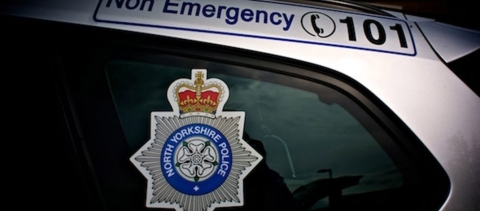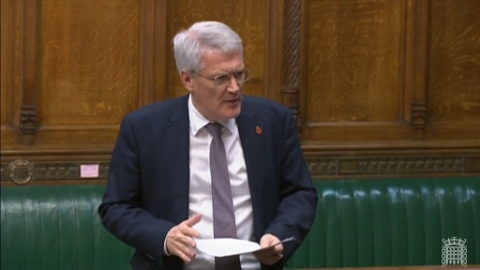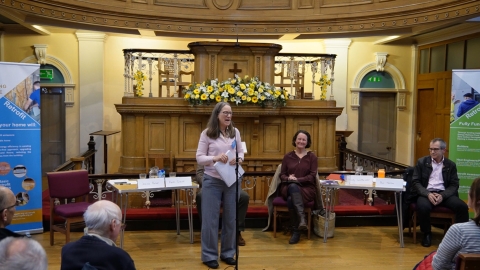The beginning of April marked the end of the UK governments call for evidence regarding the effects of gambling in the United Kingdom.
Leeds was ranked as the 7th highest city in the UK for searches related to online casinos and online slot sites and any changes to the 2005 Gambling Act will have an impact on cities across Yorkshire. Gambling reformers hope and expect that any changes made to the Act will have a positive effect on casino customers in the county.
The Call for Evidence took place between December 2020 and 31 March 2021 and aimed to scrutinise online restrictions, marketing and the powers of the Gambling Commission.
Bringing Gambling into the Digital Age
Oliver Dowden, the secretary of State for Digital, Culture, Media and Sport (DCMS) stated in 2020 that the 2005 Gambling Act is being reviewed in order to “bring the Gambling Act into the digital age.”
The question of how to control online gambling in the digital age is a difficult one to answer. The UK remains one of the tightest regulated gambling markets in the world. On the agenda of the gambling reform protagonists is a ban on gambling advertising and sponsorship in sport as well as a limit on how much players can spend when gambling online.
The justification for anti-gambling laws is problem gambling. However, according to economist Christopher Snowdon writing in the Yorkshire Post, the number of problem gamblers in the UK has remained at around 0.6% of the adult population since 1999.
There has not been a shortage of online gambling regulations in the UK. In April 2019, gambling with credit cards was banned whilst all online gambling operators are required to join GAMSTOP, the self-exclusion system which prevents anyone who has excluded themselves from playing on a regulated gambling site. In 2020, it became mandatory for state schools to teach students the risks of online gambling.
The government continue to try and ensure that online gambling is as safe as possible for UK citizens. However, Sports minister Nigel Huddleston stated that it is important for the UK government to find a middle ground for regulation in the UK gambling sector. He said:
“The review will seek to strike a careful balance between individual freedom and protecting the vulnerable.”
Ian Proctor, the UK Chairman of Flutter Entertainment Group which owns SkyBet and Paddy Power agrees that the Act needs updating but he also believes that for the vast majority of UK gamblers, gambling is a fun pastime. He told BBC’s Today programme:
“For millions of people every week, they enjoy a bet, it’s a leisure activity, it gives people a lot of pleasure. For some people it’s not, for a small minority. And we need to make gambling safer for those people.”
Does the Answer Lie in Technology?
In March 2021, the UKGC fined the online casino Casumo a record £6 million for failing to protect players. Earlier this year, it was also revealed that SkyBet were using software in order to profile players by whether they chased losses, how often they opened emails from the casino and whether they are ‘high-value customers.’ This technology, however, can and should instead be used to protect vulnerable players.
Unfortunately, it seems to be the case that currently, gambling operators are not utilising this technology to help support potential problem gamblers.
The danger with placing further regulations on operators is that players may turn to unregulated websites which offer very little protection to players. Furthermore, the government treasury only receives revenue cuts from operators which are regulated.
‘Big data’ can be used to help gambling customers. There is currently a huge number of new slot sites in the UK, all of which are regulated and are a part of GAMSTOP which is able to utilise technology to help players.
As it stands, online gambling companies use technology to both attract players and to make them play for longer, but the UK government has the power to force gambling operators to use the technology to help players. Responsible gambling teams hired by gambling operators should use advanced technology to spot problem gamblers and support them as well as to stop players from losing money which they cannot afford to use.
The Danger of Further Restrictions
The UK online gambling market is heavily regulated; but it is thought that further restrictions may do the opposite of what they intend. Arguably the most positive aspect of the UKs regulated online gambling market is that all the gambling operators you see promoted on television and online have had to go through strict requirements put forward by the UK Gambling Commission to ensure they offer 100% fair play. In addition, regulated gambling operators are forced to be a part of GAMSTOP.
If further restrictions are put into place, for example, a limit on the amount punters can bet, it may create a large black market of UK gamblers signing up to and playing at unregulated black-market operators which do not have the same limits. The dangers here are clear. Unregulated sites are under no obligation to protect players. Furthermore, the UK government treasury does not receive any money in tax from unregulated and unlicensed operators.
Government ministers have stated that a delicate balance is needed between protecting gamblers and individual freedom. It has not yet been revealed exactly when or if the government will enact the ideas put forward from the review.






